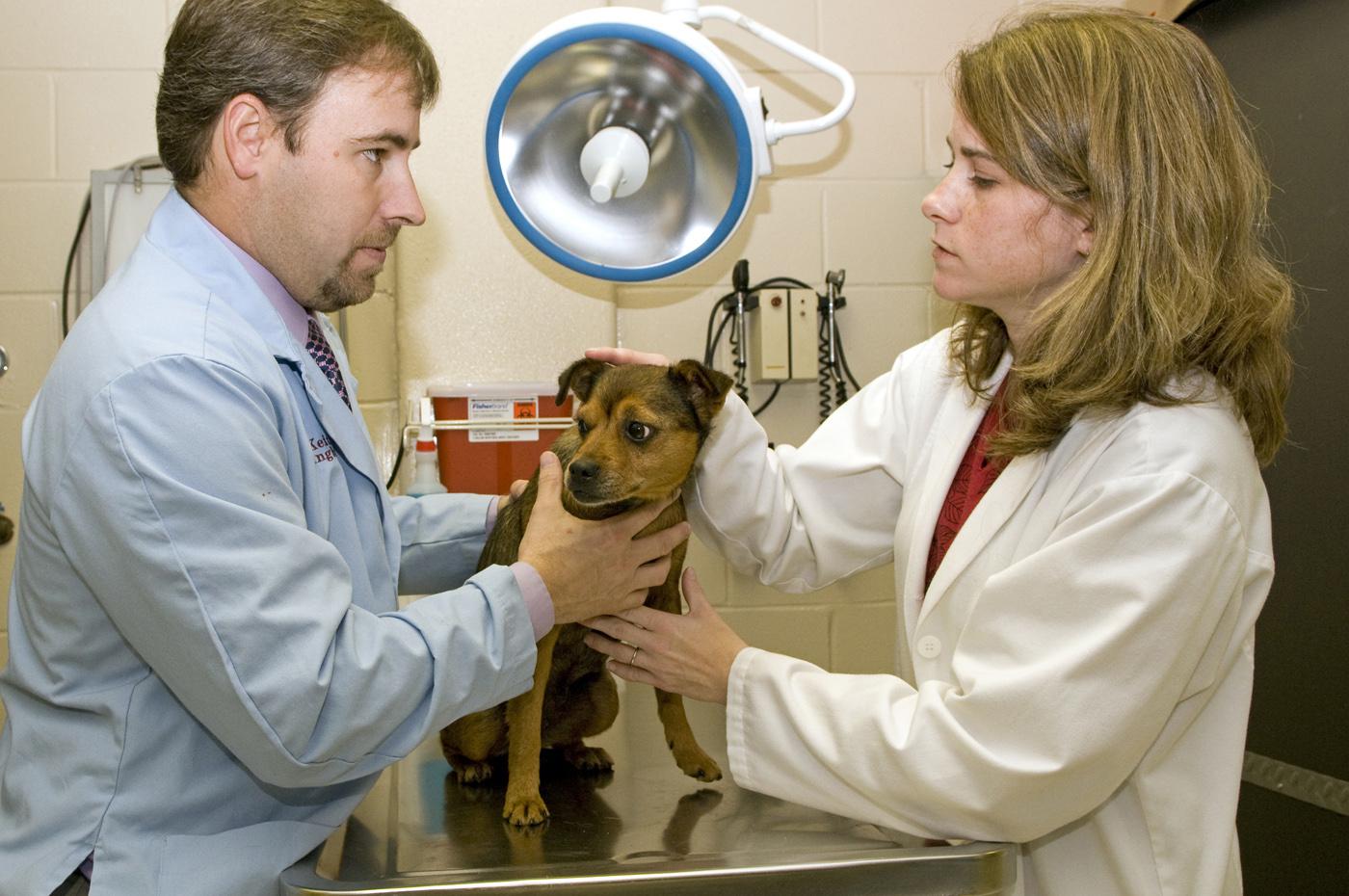Information Possibly Outdated
The information presented on this page was originally released on October 23, 2008. It may not be outdated, but please search our site for more current information. If you plan to quote or reference this information in a publication, please check with the Extension specialist or author before proceeding.
Dermatologist addresses pets' allergies, infections
MISSISSIPPI STATE -- Allergy season can be year-round for many pets, and solutions can be harder to find for small animals than for their human friends.
“With the exception of allergies to fleas and certain foods, people cannot protect their pets from many of the environmental causes of allergic reactions, such as pollens and house dust mites,” said Dr. Juli Gunter, veterinary dermatologist with Mississippi State University's College of Veterinary Medicine. “We often find ways to manage, not cure, their allergic reactions.”
Gunter, the only board-certified veterinary dermatologist in the state, recently joined MSU as a clinical faculty member. She said pet owners should watch for signs of allergies and discuss them with their pet's veterinarian to determine treatment options.
“Animals have better options and may respond better to treatment if allergies are caught early,” she said. “Some of the signs of allergic skin problems include excessive licking, chewing, scratching, rubbing and removing hair. At times, the only sign in cats may be over-grooming with resulting hair loss.”
Different diagnostic tests may be needed depending on the animal's history of skin problems. Non-seasonal itchy pets may need to take part in a food trial before being tested for allergies. Food products that typically cause allergic reactions in dogs include beef, milk, wheat and soy. Cats may be allergic to milk, other dairy products and fish.
“Anything that causes problems in humans -- molds, dust mites, pollen -- can cause allergies in pets, also,” she said. “Treatments can be oral medications, such as antihistamines and steroids, allergy therapy injections, and topical products like shampoos and conditioners.”
Gunter said pets with seasonal itchiness may benefit most by allergy testing from the start, depending on the length of time the pet has been affected. A dermatologist can perform the needed skin testing. A blood test is possible but tends to be less accurate and not as thorough. She said some skin irritations are fungal or bacterial infections or parasitic infestations, not allergies. Some autoimmune disease problems can cause skin problems.
Dr. Amanda Camp of All Creatures Animal Care Center in Madison said she does not hesitate to refer pets with chronic issues to Gunter for allergy testing.
“Some symptoms, like ear infections, may not initially be blamed on allergies. When you see the pet again for the same problem, you know something else is going on,” Camp said. “You rule out the causes that are easiest to control first, beginning with fleas and food allergies. Finally, you turn to environmental and pollen allergies. Those allergies in pets tend to be seasonal, just like they are for humans.”
Camp said local veterinarians often can solve allergy issues, but they sometimes need a veterinary dermatologist to take the testing to the next level. Often, the diagnosis is complicated because of past treatments.
“Owners really need to pursue the underlying cause of an animal's discomfort,” Camp said. “If pets are not treated effectively, they are unhappy, miserable animals. That can result in unhappy owners, too.”
Contact: Dr. Juli Gunter, (662) 325-3432



